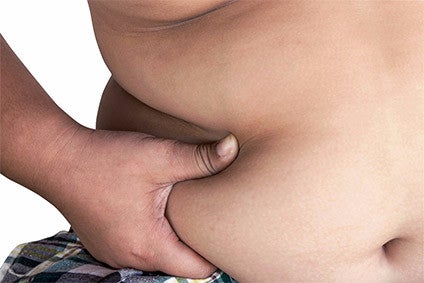
Campaigners have urged the UK to review “pathetic” childhood obesity plans after a new nationwide survey of diets indicated children aged four to 10 are consuming twice as much sugar as they should and teenagers three times as much.
According to the National Diet and Nutrition Survey, funded by Public Health England and the UK Food Standards Agency, non-milk extrinsic sugars – similar to ‘added’ or ‘free’ sugars and including sugars added by the manufacturer, cook or consumer – still make up 13.4% of children’s daily calorie intake and 15.2% of teenagers’ daily diets, in excess of the 5% recommended limit.

Discover B2B Marketing That Performs
Combine business intelligence and editorial excellence to reach engaged professionals across 36 leading media platforms.
In response to the new survey Graham MacGregor, professor of cardiovascular medicine at Queen Mary University of London and chairman of Action on Sugar said, the data showed “children are still consuming almost three times more sugar than the daily maximum recommendation”.
MacGregor said UK prime minister Theresa May “must urgently rethink her pathetic childhood obesity plan that lacks restrictions on the marketing of, and promotions on, products high in saturated fat, sugar and salt and revert back with an evidenced-based robust strategy to effectively reduce levels of obesity and type 2 diabetes and tackle health inequalities which she promised the nation back in July”.
“The strategy must include the implementation of the soft drinks industry levy and a mandatory reformulation programme, as the failed responsibility deal has already proven that a voluntary system does not work,” MacGregor said.

US Tariffs are shifting - will you react or anticipate?
Don’t let policy changes catch you off guard. Stay proactive with real-time data and expert analysis.
By GlobalDataA spokesperson for the UK Food and Drink Federation said: “This survey offers a timely reminder of the importance of taking a whole-diet approach to improving the nation’s health… Food and drink producers are taking steps to help customers towards dietary goals, lowering calories from sugars and fats in their products, capping portion sizes, and adding key nutrients such as iron and fibre. We need a national push involving all parties with a stake in improving public health to bring about positive change to whole diets.”
The Federation spokesperson said “although sugar consumption has been declining for years, it’s still too high”.
“These survey results show that during the period measured (2013-14), most age groups were relatively close to meeting the recommended maximum daily intake of sugar set at that time (with over-consumption ranging from 0.1% to 4.2% depending on the age group). The survey shows that sugar consumption by children aged four to 10 dropped during this period.”
The National Diet and Nutrition Survey has been run for the past six years collecting data on diets across the UK. The latest data, released on 9 September, was drawn from a survey of 1,288 adults and 1,258 children who completed a three or four-day food diary between 2012 and 2014.
Although sugar intake in children was too high, the survey said there was evidence that consumption of sugar-sweetened soft drinks has reduced in children. “Mean consumption was significantly lower in children aged four to 10 years in years five and six (combined) compared with years one and two (combined) (100g and 130g respectively),” the survey said.
Last month, the UK government released a strategy to tackle childhood obesity in England, including a levy on soft drinks and a voluntary reduction for sugar reduction in foods. However, the strategy was criticised for ignoring calls for curbs on junk food advertising and anti-obesity campaigners said the package of measures amounted to a “watered down” strategy that failed to signpost moves towards effective action.





